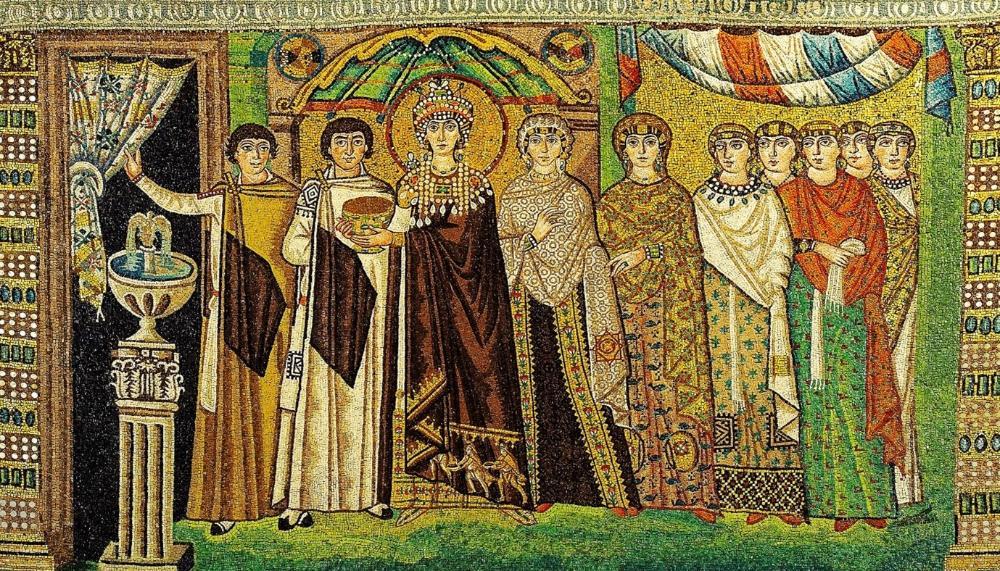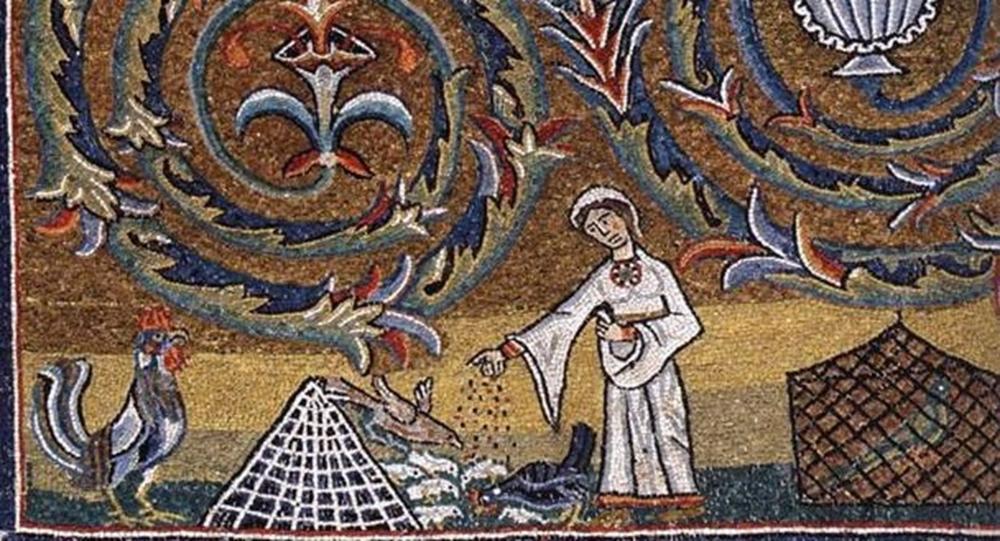- Welcome from the Head of College
- Current Undergraduate Students
- Graduate Studies
- Future Students
- International Students
- Research
- CACSSS Research Areas
- Research Impact
- Atlas of the Irish Revolution
- False Memories for Fake News in the Irish Abortion Referendum
- Atlas of the Great Irish Famine 1845-1852
- Hidden Galleries
- Movie Memories
- Between Two Unions: The constitutional future of the islands after Brexit
- Archive
- A Socio-Economic Study of Cork City Northwest Quarter Regeneration (CNWQR)
- Children’s Voices in Housing Estate Regeneration
- Cork Folklore Project
- Deep Maps: West Cork Costal Cultures
- Developing research to deliver high impacts in homelessness service provision by Cork Simon
- Moving On Ireland
- Project DaRT - Discussions and Reflections on Translation
- The Cork Folklore Project’s Memory Map
- The World-Tree Project
- The Augustinian Friars in Late Medieval Ireland
- (Re)Sounding Holy Wells
- Spotlight
- Speaking the Predicament: Empowering Reflection and Dialogue on Ecological Crisis
- Participatory arts for advocacy, activism and transformational justice with young people living in Direct Provision
- Make Film History Wins FIAT/IFTA Archive Achievement Award
- Dr. Marie Kelly (School of Film, Music & Theatre) co-edits : Scene 8 Volumes 1 and 2 (2021) – Special Issue: ‘Performance and Ireland’ (Intellect)
- The significance of humanities scholarship in challenging times
- Dr Sarah Foley, a Lecturer in the School of Applied Psychology, was awarded an NUI Grant for Early Career Academics in 2020
- NUI Awards Grant for #DouglassWeek: 8th-14th February, 2021
- Humanities for the Anthropocene
- Forgotten Lord Mayor: Donal Óg O’Callaghan, 1920-1924
- Architectural Space and the Imagination: Houses in Literature and Art from Classical to Contemporary
- Dr Siobhan O’Sullivan - Agency and ageing in place in rural Ireland
- Launch of new research cluster on 'Life Writing'
- What keeps us going?
- Through the lens of the secret police: Images from the religious underground in Eastern Europe
- Dr. Amanullah De Sondy - The Pocket Facts Guide for Jewish, Christian and Muslim People 2020
- Issue 19 of Alphaville published by The Department of Film and Screen Media
- Digital Edgeworth Network
- Make Film History: Opening up the Archives to Young Filmmakers
- Establishment of monthly online reading group on Abolition and Decarceration
- Dr Anne Marie Devlin (Applied Linguistics) published a special issue on Study abroad and the Erasmus+ programme in Europe
- Dr. Barbara Siller (Department of German), has co-published an edition on literary multilingualism.
- Postgraduate Researchers from MA in Medieval History produce Mapping Cork online exhibition
- Adaptation Considered as a Collaborative Art: Process and Practice, (Eds.: Bernadette Cronin, Rachel MagShamhráin and Nikolai Preuschoff
- (Non)Spectacular Infrastructure: Enacting Resource Circulation in Stages, Studios and Communities
- Dr. Clíona O’Carroll (Department of Folklore) has received an IRC New Foundations grant
- Dr Catherine Forde from the School of Applied Social Studies has been awarded an IRC New Foundations grant
- Elderly (non)migrants’ narratives of home: A comparative study of place-making in Ireland and Slovakia (EMNaH)
- Dr. Ken Ó Donnchú, lecturer in the Department of Modern Irish, has received an IRC New Foundations Award
- Decolonizing Irish Public Heritage
- EMBRACE - Exploring Mobility: Borders Refugees and Challenging Exclusion
- Dr. Marica Cassarino (School of Applied Psychology) awarded Royal Irish Academy and British Academy Knowledge Frontiers Network Funding
- CACSSS Postdoc wins Charlemont Grant
- Childhood, Religion and School Injustice by Karl Kitching
- New Collaboration between UCC, RTÉ and the Department of Culture, Heritage and the Gaeltacht
- Cork Movie Memories - Dan O’Connell and Gwenda Young (Department of Film and Screen Media
- Chronicles of COVID-19/Cuntais COVID-19’ initiative: testimony collection by Cork Folklore Project
- Dr. Rachel MagShamhrain (Head of Department of German) has published a co-edited collection on Adaptation
- Professor Caitríona Ní Dhúill (Department of German) has published a new monograph
- Two School Postdoctoral Fellows Awarded Royal Irish Academy and British Academy Funding
- Funding Success for Dr Joanna Hofer-Robinson
- New Collaboration between UCC, RTÉ and the Department of Culture, Heritage and the Gaeltacht
- CACSSS Postdoc wins Charlemont Grant
- Applied Social Studies team win ESWRA Outstanding Publication Award 2020
- CACSSS postdoc is awarded Maurice J. Bric Medal of Excellence at IRC’s Researcher of the Year Awards 2019.
- Past postdoctoral researchers in the College
- Dr Mastoureh Fathi
- Dr Michalis Poupazis
- Dr Richard Mason
- Dr Martin Wall
- Dr Rebekah Brennan
- Dr Tatiana Vagramenko
- Dr Anca Maria Șincan
- Dr Agnes Hesz
- Dr Gabriela Nicolescu
- Dr Kinga Povedák
- Dr Declan Taggart
- Dr Anne-Julie Lafaye
- Dr Ken Keating
- Dr Laura Maye
- Dr Martina Piperno
- Dr Brandon Yen
- Dr Annie Cummins
- Dr Rebecca Boyd
- Dr Sean Hewitt
- University Staff Recognition Awards
- CACSSS Welcome new MSCA Funded Fellows
- College of Arts, Celtic Studies and Social Sciences opens a research facility on Wandesford Quay
- IMMERSE
- CACSSS Wins Big at UCC 2018 University Staff Recognition Awards
- Upcoming Events
- Event Archive
- CACSSS Research Highlights 2012 - 2020
- Research News Archive
- IRC awards funding to 3 projects in the Dept of Archaeology: DAEICS - Digital Atlas of Early Irish Carved Stones (PI Dr Tomas O’Carragain)
- IRC awards funding to 3 projects in the Dept of Archaeology: NEW PASTURES (PI Dr Katharina Becker)
- CIPHER project shortlisted for Times Higher Ed (THE) Award
- CACSSS Researcher funded through HEA North South Research Programme with UU to explore Critical Epistemologies Across Borders (CEAB)
- Leabhar Nua ar an bhFiannaíocht/New Publication on the Finn Cycle
- Cork and Belfast north south prison-university classroom partnerships secure funding from government’s shared island initiative
- Women of the Borderlands: A Walking Biographical Study of Women’s Everyday Life on the UK/Irish Border funded through the HEA North-South Partnership
- Ultonia - Cultural Dynamics in medieval Ulster and beyond: a shared inheritance
- IRC awards funding to 3 projects in the Dept of Archaeology: IPeAT - Irish Peatland Archaeology Across Time (PI Dr Ben Gearey)
- Dr Edward Molloy, School of English and DH - wins Maurice J. Bric Medal of Excellence in IRC’s Researcher of the Year Awards 2020.
- Professor Claire Connolly (School of English and Digital Humanities) appointed to the Irish Research Council
- Dr Máirín MacCarron FRHistS wins the NUI Irish Historical Research Prize 2021
- ERC Hidden Galleries project publishes The Secret Police and the Religious Underground in Communist and Post-Communist Eastern Europe
- CACSSS researchers to host EPA funded online workshop
- €1.5 million ERC Starter Grant Award for Researcher in Dept of Music, School of Film Music and Theatre
- Three PhD students in Applied Psychology commence projects funded through SFI research centre Lero
- CACSSS Researcher co-authors paper for Science on the ‘ecological’ survival of rare manuscripts and texts
- 2021 Research Awardees recognised
- New Foundations Call 2022 open
- C21 Editions
- University College Cork and the Arts Council have appointed Alan Gilsenan as the 2019/20 Film Artist in Residence.
- School of Applied Psychology hold an open house showcase for People and Technology Research Group
- CACSSS Researcher secures major IRC Laureate award for project GENCHRON to explore gender, chronology and time in the Medieval world
- CACSSS Researcher secures major IRC Laureate award for project Cyber Social
- New York Times reports on CACSSS Researcher Dr Alexander Khalil’s (School of Film, Music & Theatre) collaborative music and neuroscience work
- project MUSLIMWOMENFILM project selected for publication in the ‘Results in Brief’ section of the European Commission’s CORDIS website
- GendeResearchIreland Symposium: Reflections on Institutionalising Gender Equality in Higher Education
- Community Engagement
- Careers & Employability
- Information for Guidance Counsellors
- Information for Staff
- Schools in the College
- People
CACSSS Researcher secures major IRC Laureate award for project GENCHRON to explore gender, chronology and time in the Medieval world
Time for Women? Gender, Chronology and Historiography before AD 900 (GENCHRON)
IRC Laureate Consolidator Grant
Dr Máirín MacCarron

Figure 1: Empress Theodora and attendants, sixth-century mosaic from San Vitale, Ravenna
Chronology is inherently male, and the chronological frameworks upon which history is built are dominated by the male perspective. This is particularly apparent in late antiquity and the early middle ages (c. fourth to c. ninth centuries), a dynamic time for chronological experimentation when a diverse range of chronological systems were in use. Several of the most commonly used systems from this period measure time by the lives of men. Eponymous years are invariably male, for example: imperial years were named for Roman emperors; regnal years for kings; and Roman consular years for consuls. Annus Domini counts time from the life of Jesus; and Annus Mundi (year of the world), which counts time from creation is often presented as years from Adam. However, despite the male gendered nature of chronology, chronological systems – and the historical edifice they uphold – are predominantly treated as neutral, rather than patriarchal and ideological.

Figure 2: Woman at work, detail from apse mosaic at San Clemente, Rome
The overarching aim of the GENCHRON project is to integrate gender into a re-evaluation of time and chronology in medieval sources and modern historiography. A formidable challenge when studying women and gender concerns the fact that women disappear and reappear in our records far more readily than men do. We will address this challenge by investigating the systemic and extensive biases of chronological systems and historical writing via two interdisciplinary strands: Strand 1 will investigate the construction of chronologies in late antiquity and the early middle ages. We will examine the world chronicle tradition in the Latin-speaking West and identify which women were key figures in the unfolding of time. In addition, we will investigate the place of women in the narrative time of selected historical and hagiographical sources. Strand 2 will interrogate how modern historians construct medieval chronologies taking early medieval Britain as a case study. The male-dominated nature of the evidence, e.g. regnal lists, ensures men’s lives are centred while female evidence is often treated as supplementary. In doing so, insufficient attention is paid to the female life cycle, and the possibility that our sources may be biased towards women of child-bearing age. We will test this hypothesis and explore its implications through analysing the presentation of all women – queens and enslaved, named and nameless – found in our sources. Innovatively de-centring male-dominated approaches, past and present, has the potential to reframe our understanding of early medieval history.
The GENCHRON project team is led by Dr Máirín MacCarron, from the School of English and Digital Humanities. The project PhD student is Jana Šmirinová, and we will be joined by a postdoctoral fellow in 2023. The project is supported by an Advisory Committee, including: Dr Rosane Minghim, School of Computer Science and Information Technology, UCC; Professor Keelin O’Donoghue, Department of Obstetrics and Gynaecology, UCC; Dr Richard Corradini, Austrian Academy of Science; Professor Julia Hillner, University of Bonn; and Professor Joanna Story, University of Leicester.
